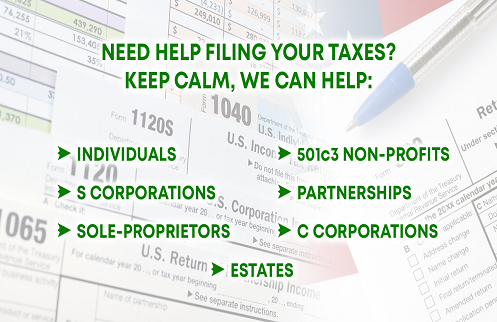Medicare Tax Planning: What Small Business Owners Need to Know for Retirement Planning
Medicare tax planning is now another retirement factor to consider as Medicare costs are projected to rise sharply over the next decade. Small business owners must consider the long-term financial impact on retirement planning. Rising health care expenses could significantly strain both personal and business budgets. By integrating small business accounting, bookkeeping, and tax planning strategies, owners in Atlanta and across Georgia can stay ahead of these changes and safeguard their retirement security.
According to recent projections, Medicare Part B premiums and out-of-pocket expenses are expected to rise over 50% by 2033. These increases will outpace Social Security cost-of-living adjustments, which means retirees will face a growing gap between benefits received and healthcare costs. Without proper financial planning, this gap can compromise retirement income and delay long-term financial goals.
For small business owners, health care inflation adds another layer of complexity to financial planning. Therefore, leveraging tax-advantaged retirement accounts, like SEP IRAs, Solo 401(k)s, and SIMPLE IRAs, becomes even more important. A trusted CPA in Atlanta can help ensure contributions are optimized, cash flow is reviewed, and retirement strategies align with projected healthcare expenses.
Medicare Tax Planning: How Small Business Accounting and Bookkeeping Can Help Manage Medicare Increases
Rising healthcare costs are not just a personal issue—they also affect your employees and overall business operations. By addressing these challenges within small business accounting, bookkeeping, and tax planning frameworks, you can create a more resilient retirement plan. For example:
- Budget forecasting: Integrating expected Medicare premium increases into personal and business budgets to avoid unexpected shortfalls.
- Cash flow management: Ensuring consistent business cash flow so higher healthcare costs don’t delay retirement contributions.
- Employee education: Guiding team members on Health Savings Accounts (HSAs) and supplemental insurance options as costs rise.
- Tax planning: Using deductions and credits to maximize retirement account contributions while reducing taxable income.
Moreover, local business owners in Atlanta can benefit from partnering with a CPA who understands both federal tax codes and Georgia’s specific tax environment. This ensures a holistic approach to integrating rising Medicare expenses into financial strategies.
Why Rising Medicare Costs Demand Attention in Small Business Accounting, Bookkeeping, and Tax Planning
Healthcare inflation is unavoidable, but with proactive Medicare tax planning, it doesn’t have to derail your retirement. A CPA can help you evaluate future liabilities, recognize opportunities to increase retirement account savings, and implement strategies that reduce long-term risks. Additionally, having accurate small business accounting and bookkeeping practices ensures you have a clear financial picture to make informed retirement decisions.
In addition, reviewing retirement strategies regularly with your CPA allows you to make adjustments for Medicare cost updates. This proactive approach ensures your business and personal financial security remain strong even as out-of-pocket expenses rise.
Conclusion
While future Medicare expenses may seem daunting, small business owners who plan ahead are better positioned to manage rising healthcare costs without compromising financial stability. By working with a trusted CPA in Atlanta, you can maximize tax-advantaged retirement savings, improve cash flow, and educate employees about their options. Now is the time to integrate Medicare projections into long-term planning. Contact Sanz Virtual Enterprise, LLC or visit www.sve-accountingandtaxes.com/special-offers-and-promotions-taxes-cpa-customized-tax-solutions/ today for a consultation with a CPA and ensure your financial future remains secure even in the face of healthcare inflation.




